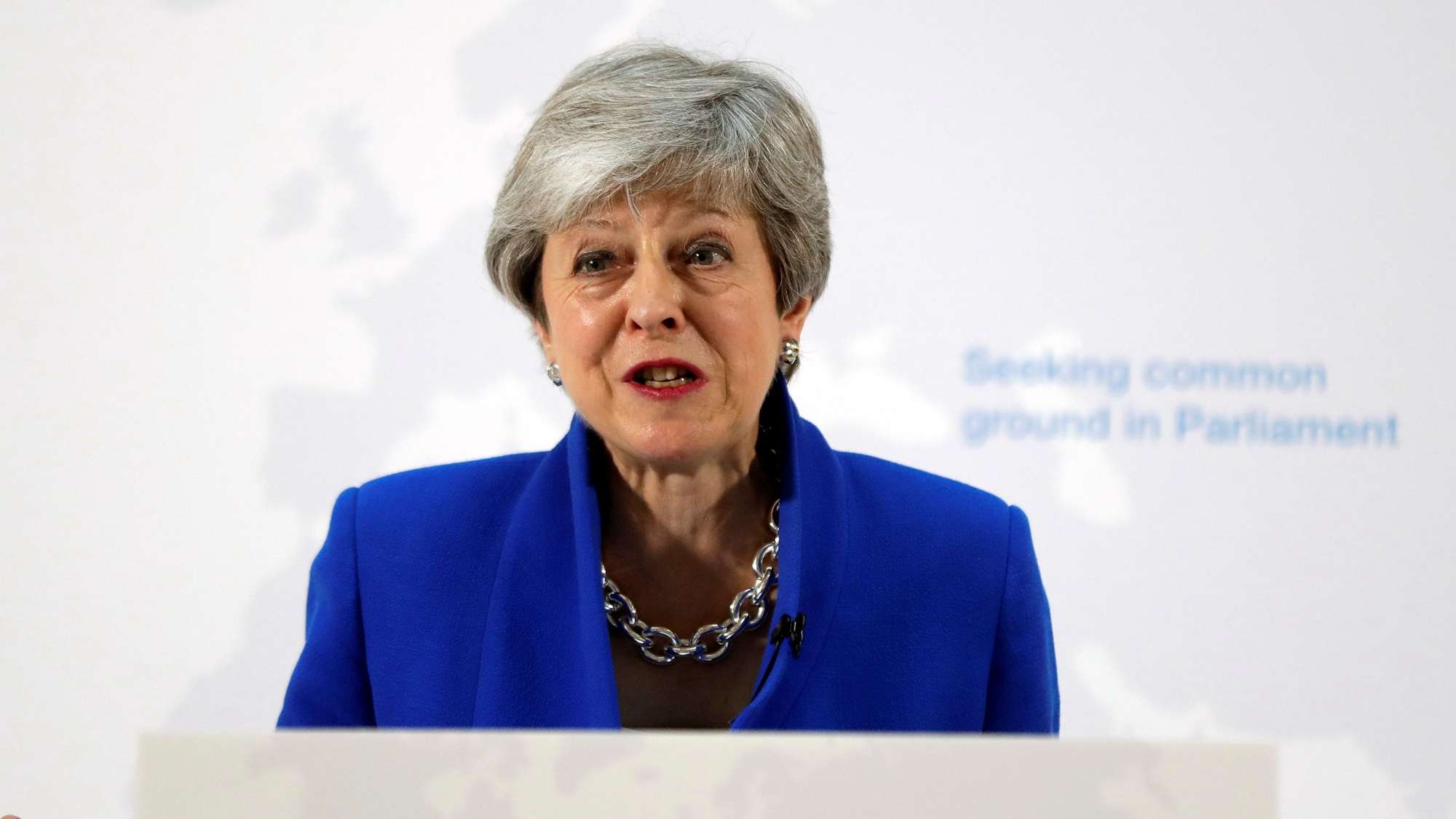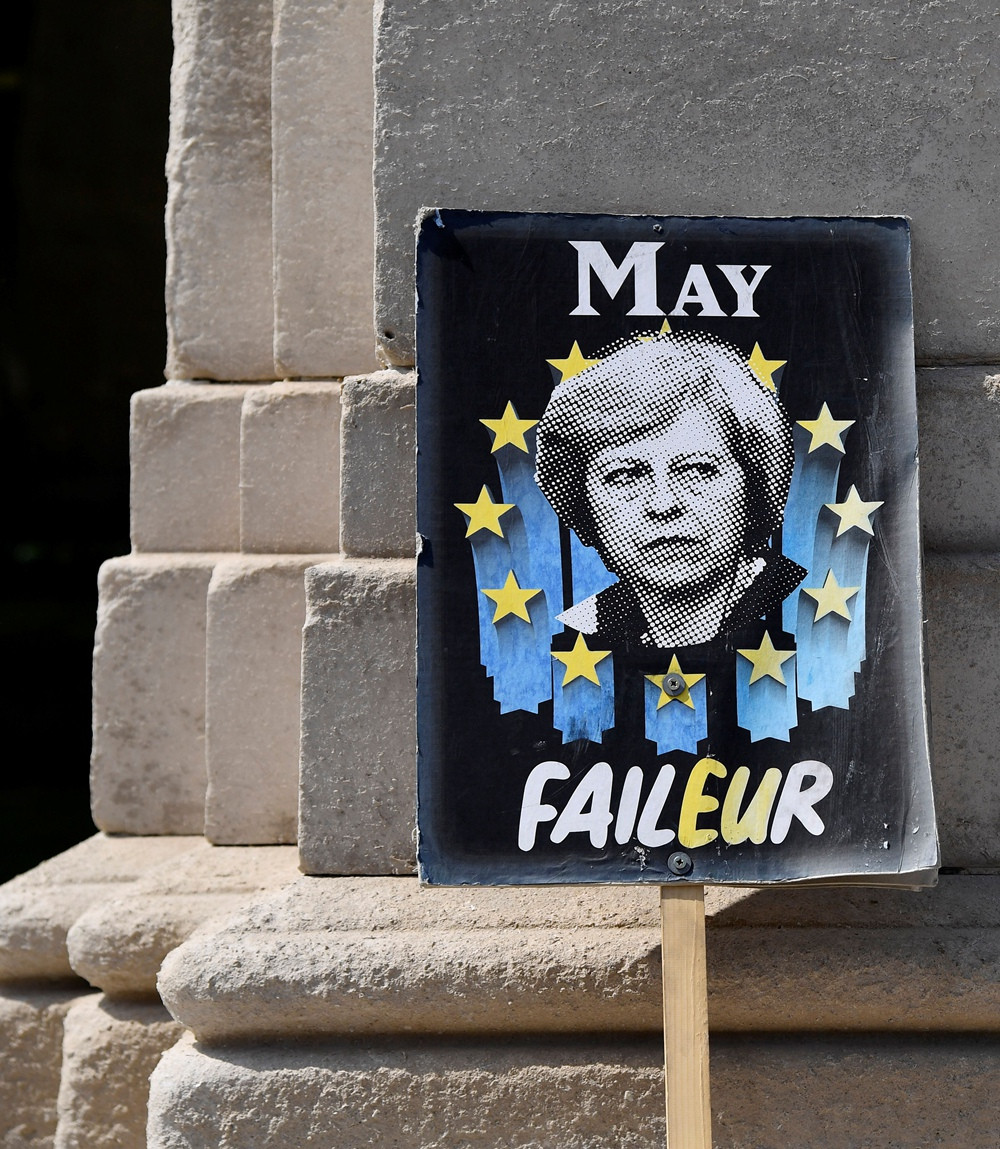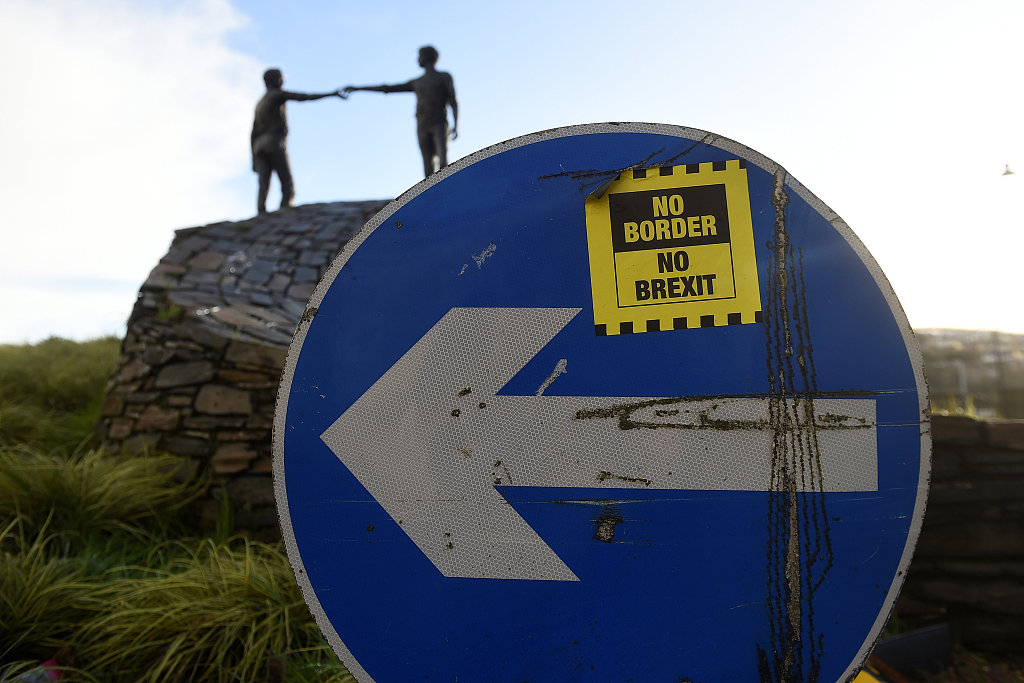
Europe
08:50, 22-May-2019
Britain's May tries to break Brexit deadlock with offer of 'new deal'
Updated
13:56, 22-May-2019
CGTN
00:52

UK Prime Minister Theresa May set out a "new deal" on Tuesday for Britain's departure from the European Union, offering sweeteners to parliament including the chance to vote on whether to hold a second referendum to try to break the impasse over Brexit.
Three years after Britain voted to leave the EU and almost two months after the planned departure date, May is mounting a last effort to try to get the deeply divided parliament's backing for a divorce deal and leave office with some kind of legacy.
The odds do not look good.
May offered what she called "significant further changes" but many lawmakers, hardened in their positions, have already decided not to vote next month for the Withdrawal Agreement Bill, legislation that implements the terms of Britain's departure.
Speaking at the headquarters of PricewaterhouseCoopers, May appealed to lawmakers to get behind her deal, offering the prospect of a possible second referendum on the agreement and closer trading arrangements with the EU as incentives.
"I say with conviction to every MP or every party: I have compromised, now I ask you to compromise," she said.
"We have been given a clear instruction by the people we are supposed to represent, so help me find a way to honor that instruction, move our country and our politics and build the better future that all of us want to see."

An anti-Brexit placard depicting Britain's Prime Minister Theresa May is seen near the Houses of Parliament in London, Britain, May 16, 2019. /Reuters Photo
An anti-Brexit placard depicting Britain's Prime Minister Theresa May is seen near the Houses of Parliament in London, Britain, May 16, 2019. /Reuters Photo
By offering the possibility of holding a second vote on her deal and a compromise on customs arrangements, May hopes to win over opposition Labour lawmakers, whose votes she needs to overcome resistance in her own Conservative Party.
But Labour leader Jeremy Corbyn said his party could not vote for the Withdrawal Bill, describing May's new offer as "largely a rehash of the government's position" in talks with the opposition that broke down last week.
The prime minister has also infuriated Brexit-supporting lawmakers, who have described a customs union with the EU as no Brexit at all.
Several leading Conservative Eurosceptic such as former Brexit minister David Davis and Jacob Rees-Mogg said they would not vote for the bill in early June.
Former foreign minister Boris Johnson and ex Brexit minister Dominic Raab, who are the top two favorite choices among Conservative members to replace May according to an opinion poll published last week, also said they would oppose the deal.
And Northern Ireland's Democratic Unionist Party, which props up May's government, said the "fatal flaws" of her original deal remained.
They fear the divorce deal could see Northern Ireland split from the rest of the United Kingdom.

A "No Border, No Brexit" sticker is seen on a road sign in front of the Peace statue entitled "Hands Across the Divide" in Londonderry, Northern Ireland, UK, January 22, 2019. /VCG Photo
A "No Border, No Brexit" sticker is seen on a road sign in front of the Peace statue entitled "Hands Across the Divide" in Londonderry, Northern Ireland, UK, January 22, 2019. /VCG Photo
Meanwhile, The Sun reported on Tuesday that senior backbenchers on the Tory 1922 committee's executive will mount a new bid to force a confidence vote in the UK prime minister during a lunchtime Commons address on Wednesday.
"I will be asking my colleagues on the 1922 executive tomorrow to agree to a rule change so we can hold an immediate confidence vote if Theresa is not prepared to stand down now," the newspaper quoted Conservative lawmaker Nigel Evans as saying.
Source(s): Reuters

SITEMAP
Copyright © 2018 CGTN. Beijing ICP prepared NO.16065310-3
Copyright © 2018 CGTN. Beijing ICP prepared NO.16065310-3